Secularists (and Some Conservatives) Must Learn to Dance with Fairy Tales
Once upon a time, it seemed many evangelical Christian parents warned against fairy tales. “These fairy tales are full of witchcraft,” these parents said. “They’ve got negative beauty expectations for girls, plus scary images, like creepy faces.”
Some parents restricted their children’s access to, say, Disney VHS tapes, or any media not specifically labeled as “Christian” or “family friendly.” Some went further (and perhaps more consistently) and chose to forego television, movies, or other digital media altogether. And all seemed well—until the children got older.
Time passed. Many older Christians grew in wisdom. They began to see fairy tales not as intrinsically wicked, but as imaginative creations of humans, for ill or good.
But “all this has happened before, and it will all happen again.” From the BBC:
Keira Knightley says she has banned her three-year-old daughter from watching Disney films whose portrayal of women she disagrees with.
Edie Knightley Righton is not allowed to watch Cinderella or Little Mermaid.
Knightley told Ellen DeGeneres that 1950’s Cinderella “waits around for a rich guy to rescue her. Don’t! Rescue yourself. Obviously!”
She said of Little Mermaid: “I mean, the songs are great, but do not give your voice up for a man. Hello!”
The actress added: “And this is the one that I’m quite annoyed about because I really like the film. I love The Little Mermaid! That one’s a little tricky – but I’m keeping to it.”1
Meanwhile, real-life Disney princess voice, Kristen Bell (Anna from Frozen) takes a similar tack. But at least Bell says she talks with her children about fairy-tale films:
“Every time we close Snow White I look at my girls and ask, ‘Don’t you think it’s weird that Snow White didn’t ask the old witch why she needed to eat the apple? Or where she got that apple?’ I say, ‘I would never take food from a stranger, would you?’ And my kids are like, ‘No!’ And I’m like, ‘Okay, I’m doing something right.'”2
If at this point you’re thinking anything like, “These actors should just shut up and sing,” hold your boos and hisses (and not just because this response risks de-humanizing bearers of God’s image just because of their career field).
It’s not just celebrities who say these sorts of things.
I recall when nonsense like this spread all over the place in response to the last Cinderella film (2015, directed by Kenneth Branagh).3
One reviewer said she wanted the film “to be big enough to marry my childhood dreams with my adult belief that women aren’t ennobled by suffering or diminished by ambition.”4 Although she praised the film’s good intentions and lavishness, she found Cinderella herself weak and “more submissive than Anastasia Steele.”5
Meanwhile, a psychotherapist warned that Cinderella—and fairy tales like it—is dangerous for daughters:
“Depicting a female who appears utterly helpless until a male swoops in and rescues her from all of her troubles sends a troubling message,” [psychotherapist and author Amy Morin] tells Yahoo Parenting. “Girls may learn, ‘I can’t solve my problems, but a boy could.’ It’s much healthier for girls to recognize their own problem-solving skills, rather than look to boys as the solution.”6
A professor dismissed the supposed “harm” but also significance of fairy stories:
“It’s a misguided notion that these stories are going to have lasting significance to a child. … Cinderella doesn’t do any harm. It’s just a charming story. Kids enjoy fairy tales and these stories fulfill fantasies.”7
Well, this is all just a bunch of wacky socialist progressivists who, based on their need for political correctness and “safe spaces,” can’t enjoy harmless entertainment, right? Not quite. This chap, over at conservative website The Federalist, unfortunately responded in kind:
“Tangled” retells the story of Rapunzel so that it fits the moral criteria of people like Knightley and other progressive mothers who recoil from the original story of a girl locked up in a tower only to be saved by a man. What results is a predictable tale of a young woman learning to be her own savior, not fall for man-children, and not trust her mother.8
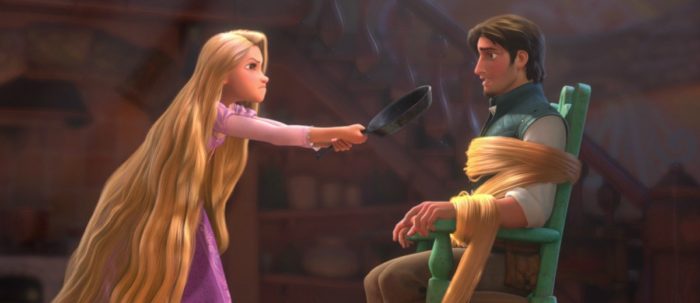
After this “astute” recounting of the film’s plot, the author raids a random grab bag of weak film-criticism clichés (Tangled is “forgettable … recycled … mishmash”), but that’s beside the point. This writer hasn’t even accurately described Tangled, which wholly embraces the man-rescues-princess trope, fleshing out dashing rescuer Eugene “Flynn Rider” Fitzherbert and charming artist Rapunzel. It’s simply terrible observation at best, or deception at worst, to claim the film endorses any “young woman learning to be her own savior” shenanigans. Similarly, this bit about Frozen:
Everyone loves Elsa, the princess who is blessed and cursed with the power to freeze things, even though she is the actual villain in the story. She freezes the kingdom and puts many lives at risk because the people are (rightly) scared of her. The movie’s catchy anthem “Let It Go” is not a happy song; it’s all about her celebrating her newfound freedom from her family and caring for others.
The movie strongly suggests it’s okay to harm others if you’re a woman who has suffered.9
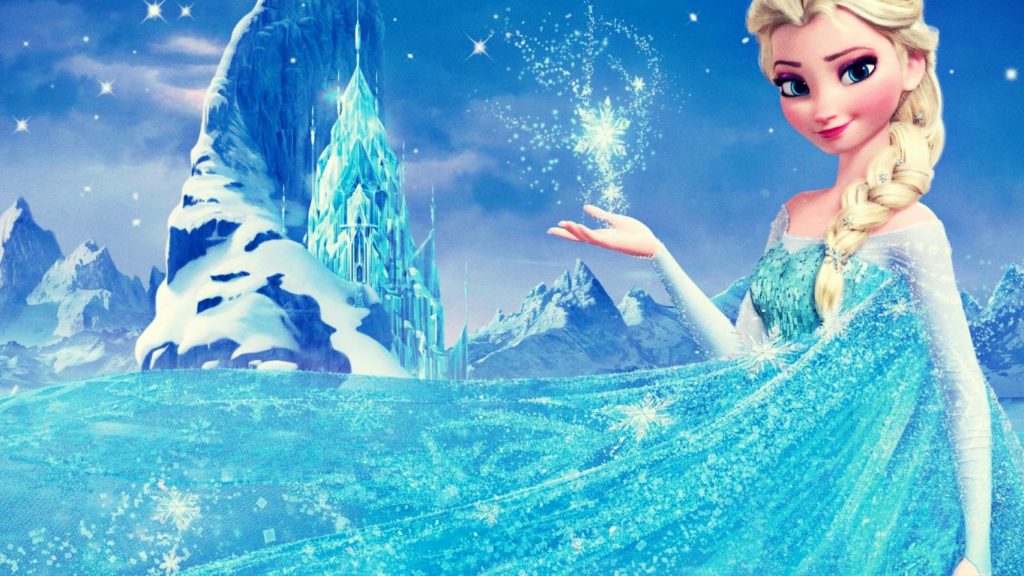
Simply put: no, it does not. Frozen ends with Anna’s act of perfect-love self-sacrifice, which thaws her sister’s frozen heart and ultimately redeems a kingdom from Elsa’s pain of separation and resulting vengeance. Anyone who doesn’t see this finale has literally quit watching the movie partway through, or is simply prevaricating.
Unfortunately, I’ve seen plenty of similar “critiques” from conservative-type viewers, who think that any lazy criticism of movies is basically deserved because “well, they have agendas.” Of course these films have agendas. In fact, they’re made by hundreds and thousands of people, each of whom has a separate agenda, and collective agendas honed by creative and capitalist impulse. None of that is any excuse for plain incorrectness, in the name of decrying “political correctness.”

Nor does this excuse the types of fear-based approach advocated (often with good intentions) by parents or critics who quite simply refuse to enjoy fairy tales as they should be enjoyed. Such critics may not recognize the truth that humans must have “a time to weep, and a time to laugh; a time to mourn, and a time to dance” (Ecclesiastes 3:4). Well-made fairy tales include glimpses of both these pairings. Yet the genre also requires two rules of the dance: magic for the sake of joy and not just “usefulness,” and simple yet realistic evil that is defeated for a happy finale.
This critical ignorance of fairy tales’ purpose get even worse when they’re married to zeal for contemporary social movements or just plain trends. Critic or Celebrity X says something like “Snow White didn’t consent to that kiss,” and while she echoes a commonly acknowledged idea—such as “true romance is mutually consensual”—no one challenges it. We all assume that idea is morally valid because, well, most of us assume that most of us, or at least the important people whose opinions on morality really matter, all got together and believed it was valid. Like paper money.
Without an objective truth, however, there’s no real, lasting, eternal foundation behind a (true) idea like “true romance is mutually consensual.” You may feel very strongly that this is true. But without a Truth-giver, it’s just you and your feelings saying that, and/or joining with a majority (or an important minority) to say it.
That’s a terrible basis for critiquing or praising anything, even a fairy tale.
It’s also a terrible basis that can ultimately destroy the human creative impulse and capacity to remain humble beings who can see beauty and truth reflected in the creations of other humans (often from older ages), such as fairy tales. Without such vision for beauty, we’ll be forced toward terrible presumptions about reality—and we’ll assume (like some of these would-be critics seem to assume) that today’s temporal social battles, strategies, and trends are what matter most.
If that assumption were true, then yes, The Little Mermaid, Snow White, Cinderella and other fairy tales are at best harmless and at worst impractical, escapist nonsense. Why dance in fairy-land when we have Serious Work to be done?
But the biblical Christians sees the world differently.
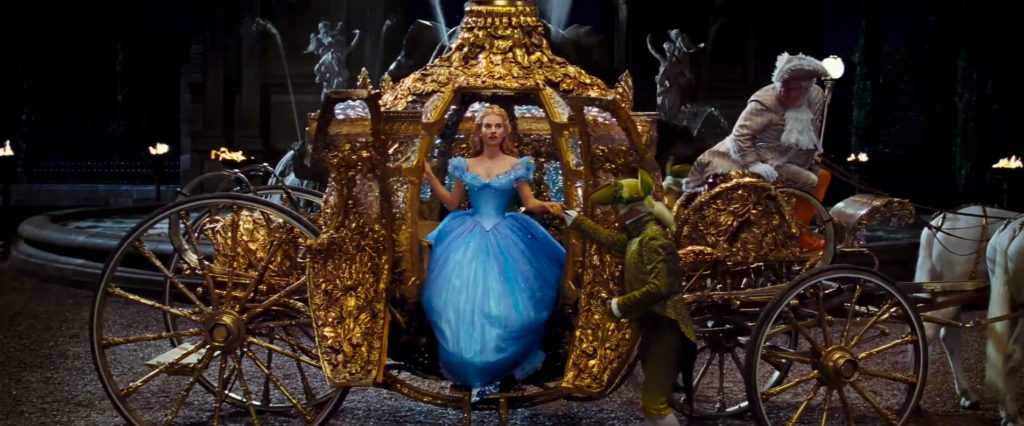
Yes, we must train and practice for serious kingdom responsibilities. But for what eternal purpose? Biblical Christians do not believe the future of the universe is about unending servitude for important social/political causes. We believe in an future royal ball filled with pageantry, beauty, honor, and adventure.
I don’t know if Cinderella director Branagh also believes in this eschatology. But he does understand the truth that fairy tales shine with colors and play music that humans need.
We are affectionate for [fairy tales] because they appear not to be dressed up too much in morality. They are, but they have the virtue of appearing very simple—and some people might feel even simplistic—but they always catch us by surprise with their emotional power. … I felt that that invitation to be immersed in a vibrant, glamorous, highly colored world was really important as a sensory experience. A feast for the senses, but at the middle of it, people we can sort of see in the mirror. 10
If we believe in the goodness of color, dancing and feasting, let us beware being so “grown up” by demanding a fairy tale serve our shallow, temporal ends. Let us humble ourselves as children to receive with thanksgiving the beauties, truths, and magic of fairyland, seeking first to enjoy these stories—well-crafted ones, whenever they appear—for what they are meant to be: fantastical reflections of magic and delight. In truth, the very acts of rediscovering and enjoying these stories can help redeemed persons, courageous princesses and gallant princes, grow into God-honoring human beings who might even someday learn to dance.
- Author uncredited, “Keira Knightley bans daughter from watching some Disney films.” BBC News, Oct. 18, 2018. ↩
- Jessica Hartshorn, “Kristen Bell Worries Disney Princesses Teach Her Daughters Bad Lessons.” Parents.com, article undated. ↩
- Some of my comments here are adapted from initial articles about that exceptionally good film. ↩
- Jaclyn Friedman, “Why Disney’s New Cinderella Is the Anti-Frozen.” Time, March 15, 2015. ↩
- Ibid. Friedman is referring to the sex-and-bondage-prone figure of 50 Shades of Gray. ↩
- Jennifer O’Neil, “New ‘Cinderella’ Film Sparks Backlash.” Yahoo! Parenting, March 17, 2015. ↩
- Ibid. ↩
- Auguste Meyrat, “How Political Correctness Has Ruined Disney’s Most Recent Princess Movies.” The Federalist, Oct. 22, 2018. ↩
- Ibid. ↩
- Don Kaye, “Kenneth Branagh Interview: Cinderella, Thor, and More!” Den of Geek, March 12, 2015. ↩



































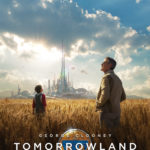

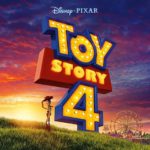




Here is an accurate place to put an applause gif. This article is well said.
Good article. What I have noticed is that fundamentalists–whether they are socialist, feminist, or Christian fundamentalists–lack imagination. They cannot see past binary oppositions of “This is good, this is bad.” Enjoying art requires imagination. This, sadly, is just what so many people are lacking.
YAAAAASSSSSS!!
Well said! Gosh, can you even imagine if the whole point of life were more duty & obligation? “Try really hard, put in 110%, and you’ll get to do the same thing forever and never quite get there….” Thank goodness we have glimpses of that joyous feast, that run further up and further in, to wet our appetites.
That is sort of why it bugs me when people act like only religious people are capable of being unreasonable, limiting freedom, etc.
People seem to fall into the trap sometimes of thinking that if any character in a story acts in a way they disagree with, at any point in the film, the film is automatically bad. This is actually a very toxic way of thinking because it encourages people to think that they have to emulate the behavior they see in stories, rather than deciding for themselves.
Back when I was in fourth grade, my teacher actually talked bad about The Little Mermaid, though it was from the standpoint that she thought it advocated children disobeying their parents. Thinking about it now, I can see how that lesson can be gathered from the film, but it doesn’t have to be the lesson gleaned. We could say that Little Mermaid shows that, yes, one’s parents can be a bit jerkish or wrong about something, but that doesn’t mean that a child’s rebellion/disobedience in response to that is a safe or good thing. The film also shows that Ariel’s father is good and loves her unconditionally in spite of the mistakes they both made.
It’s kind of weird to me that people want to see Disney’s Cinderella as only submissive. Yeah, she doesn’t come off as strong, but she goes to the ball regardless of any resistance she meets, and pursues her dream without a second thought. If she were completely submissive, she would have stayed at home. Furthermore, most of the influential people in her story are women (she is antagonized by her sisters and mother, but aided by a fairy godmother.)
As far as fairy tale girls being a bad example to women…they’re acting like these fairy tales are going to be nearly the only characters their children will watch, or that their children must emulate girls and movies to the letter instead of being themselves and exercising discretion when it comes to how the behave. I watched things like Cinderella a lot when I was a kid, but I’m far from passive or anything. Partly because I watched a wide variety of movies aside from princess ones, and either way, seeing Cinderella isn’t going to override my personality, beliefs, etc. Likely enough that’s the case for most kids.
Obviously if a show has super bad messages/content little kids shouldn’t watch them. But the examples here don’t qualify for that.
Funny how none of the critics complain about the wicked stepmother or ugly stepsisters and how they are poor role models. Lol.
Plus they refuse to appreciate how things were different back then. Women married VERY young. Between 12 and 15. You were often betrothed or married in form much younger.
And–while it may be cool to hear Princess Jasmine rant about “choosing” her own suitor and making a bid for independence–girls brought up in that culture didn’t act that way. You might not be happy about marrying Prince Alarming, but you knew better than to protest once the banns were posted. Most girls shrugged it off and made the best of it.
Fiddler on the Roof did a better job of depicting this and how the oldest girl finally got to marry the poor but age appropriate man she loved.
Wow! Some of these critics must never have heard of story arcs or character development. Characters are supposed to make bad choices and mistakes to learn and grow. This makes it a character driven plot–not a melodrama like “The Perils of Pauline.”
Personally I dislike Ariel. The only Disney princess I really can’t stand. (Helpless AND bratty. And shallow as a puddle. As a teen I watched that movie wistfully, knowing the truth. Character and wisdom didn’t amount to a hill of beans if you weren’t pretty on the outside where it counts.) In defense of Princess Bubble-head, I wouldn’t have been so disgusted by her if I hadn’t enjoyed the original fairy tale as a kid. She can’t hold a candle to that young woman.
The original Little Mermaid didn’t need a man to save her. Which is good since she didn’t get the boy. But through her courage, self sacrifice, and whole hearted pursuit of the Heavenly Kingdom she gained a soul.
What profiteth it a woman if she gain a man, but lose her own soul?